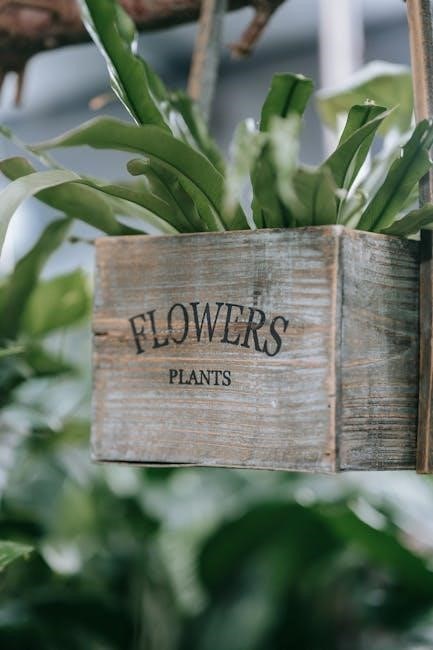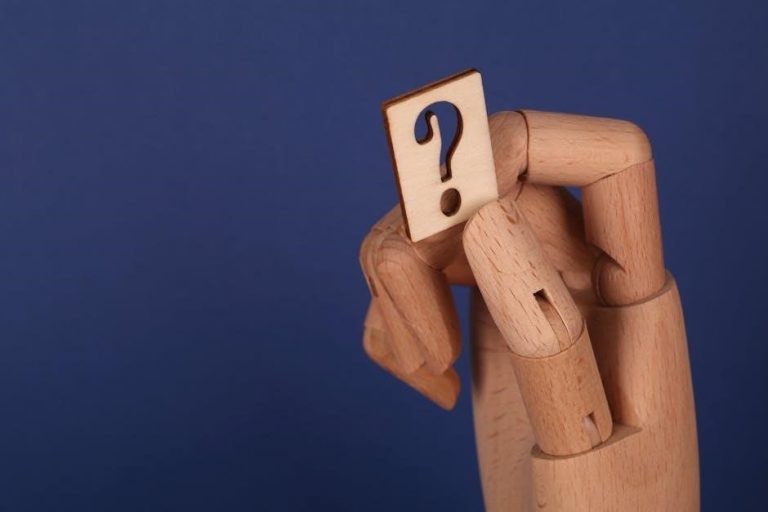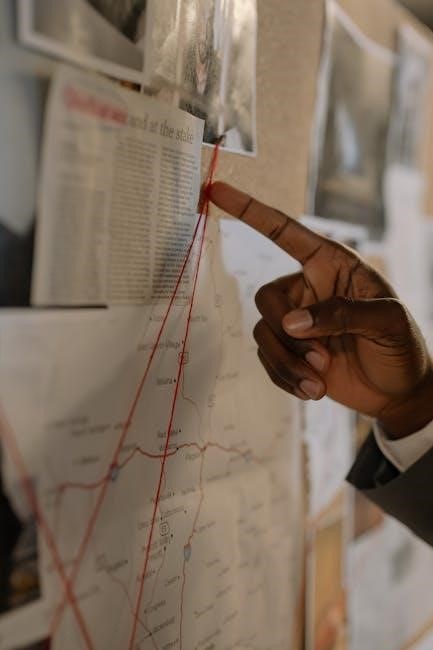
Guided crossword clues are tools designed to assist solvers in understanding and solving crossword puzzles effectively. They provide hints, anagram solvers, and cryptogram generators, making them accessible to all skill levels.
1.1 Overview of Crossword Clues
Crossword clues are hints designed to help solvers fill in the correct words for a puzzle. They can range from straightforward definitions to complex anagrams or wordplay. Guided crossword clues often include tools like anagram generators, partial word matching, and databases of common answers. Websites such as Crossword Solver and CrosswordCheats.com provide resources to analyze clues and find matching words. Additionally, communities on platforms like Reddit offer discussions and explanations for confusing clues. These tools make crosswords more accessible, especially for beginners or those stuck on tricky puzzles. By focusing on clues and their structure, solvers can improve their skills and enjoy the challenge of crosswords more effectively.
1.2 Importance of Guided Crossword Clues
Guided crossword clues play a vital role in enhancing the solving experience by providing structured support for enthusiasts of all skill levels. They act as a bridge between challenging puzzles and solvers, offering hints, anagram generators, and wordplay explanations. By breaking down complex clues, these tools make crosswords more accessible, especially for beginners. They also cater to experienced solvers by uncovering obscure references or wordplay. Additionally, guided clues foster learning and problem-solving skills, making crosswords an educational and enjoyable activity. Online platforms and communities further amplify their importance by offering shared resources and explanations, creating a collaborative environment for crossword enthusiasts to grow and improve together.

Popular Types of Crossword Clues
Guided crossword clues are categorized into general knowledge, themed, and anagram-based types, each offering unique challenges and engagement for solvers of varying expertise levels.
2.1 General Knowledge Clues
General knowledge clues are the most common type of crossword clues, testing solvers’ broad knowledge across various topics. These clues typically involve straightforward definitions or facts, such as capital cities, historical events, famous people, or common phrases. They often rely on widely recognized information, making them accessible to a wide audience. For example, a clue like “Flower that is also a girl’s name” might lead to “Lily.” These clues are great for beginners, as they don’t require specialized knowledge or complex wordplay. However, they can still be challenging, especially when the answer is less obvious or requires thinking outside the box. General knowledge clues are a staple in crosswords, ensuring that puzzles remain engaging and solvable for people of all skill levels.
2.2 Themed Crossword Clues
Themed crossword clues are designed around a specific subject or concept, providing a unique and engaging challenge for solvers. These clues are often tied to a particular topic, such as movies, sports, literature, or historical events, and require solvers to have some knowledge of the theme. For example, a movie-themed clue might ask for the name of a famous film quote or character. Themed crosswords often include a title or introduction that hints at the theme, helping solvers anticipate the type of clues they will encounter. These puzzles are particularly appealing to enthusiasts of the chosen theme, as they combine problem-solving with a deeper exploration of the subject matter. Themed clues also encourage solvers to think creatively, as the answers often rely on shared cultural references or specialized knowledge. This makes themed crosswords a popular choice for both casual and expert solvers alike.
2.3 Anagram and Cryptogram Clues
Anagram and cryptogram clues add a layer of complexity to crossword puzzles by requiring solvers to decode or rearrange letters to find the correct answer. Anagram clues involve rearranging the letters of a word or phrase to form a new word, often with a hint provided in the clue. For example, “Listen” can become “Silent” in an anagram. Cryptogram clues, on the other hand, use cryptographic techniques, such as letter substitution or shifting, to conceal the answer. These clues challenge solvers to think creatively and use pattern recognition skills. To solve them, solvers must carefully analyze the clue, identify possible letter combinations, and test their theories. Anagram and cryptogram clues are popular in advanced crosswords and require a combination of logical thinking and linguistic knowledge. They offer a fun and rewarding experience for those who enjoy wordplay and puzzles.
Strategies for Solving Crossword Clues
Effective strategies include identifying starting points, using synonyms, decoding wordplay, and checking letter patterns. Eliminating incorrect answers and staying patient also enhance solving success.
3.1 Identifying Starting Points
Identifying starting points is crucial for solving crossword clues effectively. Begin by scanning the grid for short clues or those with fewer letters, as these often provide quick answers. Look for clues that contain common letters or patterns, such as vowels or frequently used consonants. Additionally, focus on clues that intersect with others, as solving one can reveal letters for adjacent clues. Pay attention to wordplay indicators like “flower” or “animal,” which hint at specific categories. Online tools like crossword solvers can also help pinpoint starting points by suggesting possible answers based on partial letters. By methodically targeting the most manageable clues first, solvers can build momentum and fill in the grid systematically; This approach minimizes frustration and maximizes progress, especially for beginners learning to navigate guided crossword clues.
3.2 Using Synonyms and Related Words
Using synonyms and related words is a powerful strategy for solving crossword clues. Crossword clues often hint at answers through indirect language, requiring solvers to think creatively. For example, if a clue asks for a “flower,” the answer might be “rose” or “lily,” but it could also be a synonym like “bloom.” Similarly, a clue referencing “animal” might lead to “cat” or “dog,” but could also point to “pet.” Expanding your vocabulary and understanding wordplay is essential. Online tools like thesauruses can help identify synonyms quickly. Additionally, recognizing patterns in clues, such as “small” or “large,” can guide you to the correct word. By focusing on related words and their meanings, solvers can decode even the most challenging clues. This method enhances problem-solving skills and makes guided crossword clues more enjoyable and accessible for everyone.
3.3 Decoding Wordplay in Clues
Decoding wordplay in crossword clues is a crucial skill for solvers, as many clues rely on puns, anagrams, or double definitions. Wordplay often involves clever twists, such as homophones (words that sound alike) or reversals (words read backward). For example, a clue like “Flower that sounds like a girl’s name” might lead to “rose” or “lily.” Anagrams, where letters are rearranged, are another common technique. To master wordplay, solvers should practice recognizing patterns and trigger words like “sounds like,” “reversed,” or “hidden in.” Experience and familiarity with common wordplay types can significantly improve solving speed and accuracy. Additionally, understanding the constructor’s style and preferences can provide valuable insights. By honing this skill, crossword enthusiasts can tackle even the most intricate clues with confidence and enjoyment.
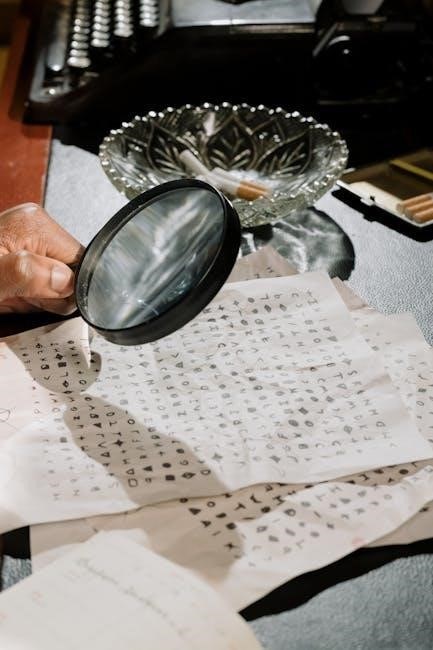
Online Tools for Guided Crossword Clues
Online tools provide a range of resources, including crossword solvers, forums, and anagram generators, to enhance solving efficiency and enjoyment for guided crossword clues.
4.1 Crossword Solver Websites
Crossword solver websites are invaluable resources for guided crossword clues, offering instant solutions to tricky puzzles. Popular platforms like Crossword Solver, Crossword Clue Solver, and Sudoku.com provide comprehensive databases of words and phrases. These tools often include features such as anagram solvers, word generators, and filters based on letter count or starting/ending letters. Users can input clues or partially filled grids to receive suggestions or complete answers. Many sites cater to both beginners and experts, supporting various crossword formats like American-style, British-style, or cryptic crosswords. Additionally, some platforms offer explanations for answers, helping users understand the wordplay or references behind clues. By leveraging these tools, solvers can overcome obstacles, learn new strategies, and enhance their overall crossword experience. Regular updates ensure the databases stay current with modern slang, idioms, and cultural references, making them indispensable for crossword enthusiasts. These websites are easily accessible via desktop or mobile, providing convenience for on-the-go solving.
4;2 Crossword Forums and Communities
Crossword forums and communities are vibrant platforms where enthusiasts gather to discuss clues, share tips, and solve puzzles collaboratively. These online spaces offer a wealth of resources, including solved crosswords, expert advice, and detailed explanations. Many forums feature discussion threads dedicated to specific crossword types, such as cryptic or themed puzzles. Members often exchange insights, debate tricky clues, and provide feedback on each other’s progress. Additionally, these communities host events like crossword competitions and collaborative solving sessions. Experienced solvers frequently share their strategies, helping newcomers improve their skills. The camaraderie and shared passion for crosswords foster a supportive environment, making these forums an invaluable resource for learning and growth. By engaging with these communities, solvers can refine their techniques, discover new approaches, and stay updated on crossword trends. They also serve as a hub for celebrating successes and overcoming challenges together.
4.3 Anagram and Wordplay Generators
Anagram and wordplay generators are essential tools for deciphering complex crossword clues, especially those involving wordplay. These tools allow users to input letters and generate possible anagrams, rearrangements, or related words. They are particularly useful for clues that involve cryptic wordplay, such as anagrams, reversals, or hidden meanings. Some generators also provide synonyms, antonyms, or definitions to aid in understanding the context. Advanced tools may even suggest potential answers based on partial letters or patterns. These resources are invaluable for solvers who struggle with wordplay-heavy clues, offering insights and shortcuts to uncover hidden solutions. By leveraging these generators, crossword enthusiasts can enhance their problem-solving skills and tackle even the most challenging puzzles with confidence. They are a key component in the modern crossword-solving toolkit, making the process more efficient and enjoyable.**

Creating Your Own Crossword Clues
Creating crossword clues involves crafting clear, engaging hints that lead solvers to the correct answers, balancing cleverness with clarity for an enjoyable solving experience.
5.1 Understanding Crossword Clue Structure
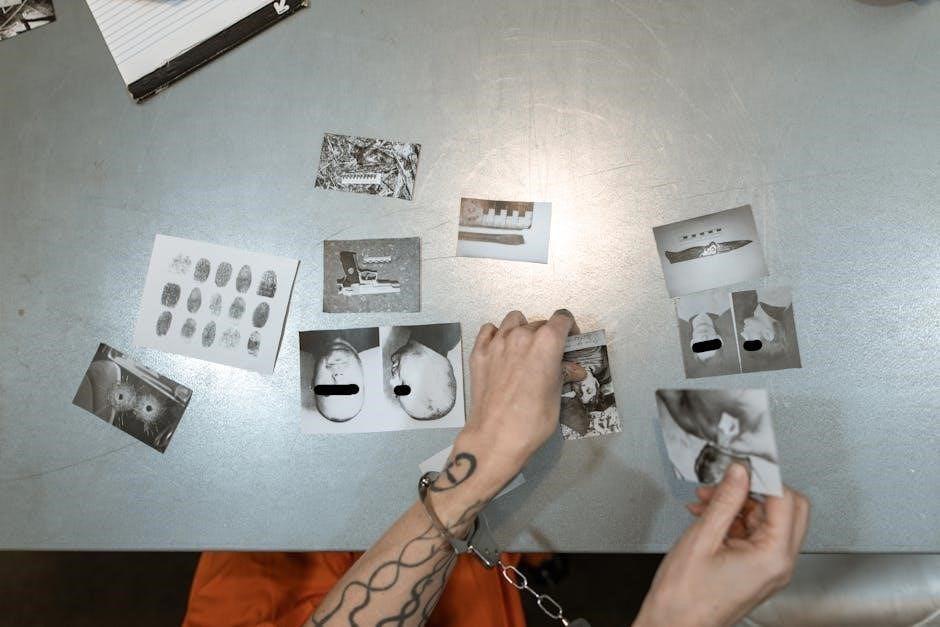
Mastering the structure of crossword clues is essential for both creators and solvers. A typical clue consists of a definition and wordplay, guiding solvers to the answer. The definition provides a direct hint, while wordplay, such as anagrams or puns, adds complexity. Clues often include the answer length in parentheses, aiding solvers in narrowing down possibilities. Understanding this structure helps in crafting clues that are both challenging and fair, ensuring an enjoyable puzzle experience.
5.2 Tips for Writing Effective Clues
Writing effective crossword clues requires a balance between clarity and creativity. Start by ensuring the clue is concise yet descriptive, avoiding ambiguity. Use precise language to guide solvers without giving away the answer. Incorporate wordplay, such as anagrams or puns, but keep it fair and solvable. Clues should include a clear definition and, if applicable, a hint at the wordplay. Avoid overly complex or obscure references that might frustrate solvers. Test your clues to ensure they are logical and fun. Consider the difficulty level of your audience and adjust accordingly. Finally, review your clues for grammar and clarity to ensure they are both challenging and enjoyable. These tips will help you craft clues that engage and satisfy solvers of all skill levels.
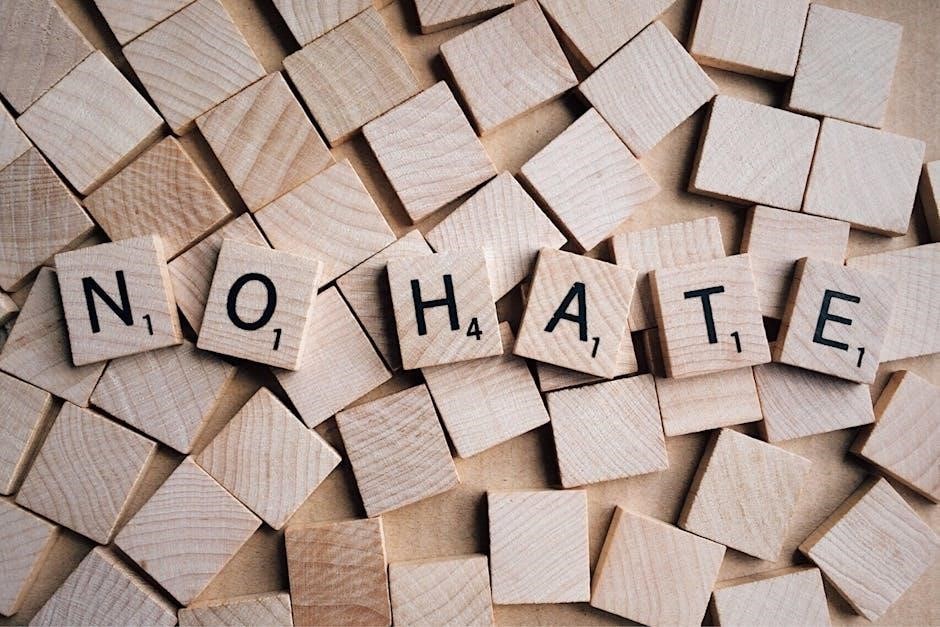
5.3 Avoiding Common Mistakes in Clue Creation

When crafting crossword clues, it’s essential to avoid common pitfalls that can confuse or frustrate solvers. One frequent mistake is making clues overly vague or open-ended, which can lead to multiple possible answers. Another error is using obscure references or outdated terminology that may not resonate with modern solvers. Additionally, avoid relying too heavily on complex wordplay without providing clear indicators, as this can make the clue unsolvable. Clues should also avoid ambiguity in word lengths or definitions. Ensure that clues are grammatically correct and free of typos, as mistakes can mislead solvers. Lastly, test your clues with a diverse group to identify and fix any issues. By addressing these common mistakes, you can create clues that are both challenging and fair, enhancing the overall crossword experience.

Learning from Crossword Experts
Learning from crossword experts helps improve solving skills and understanding of clue patterns. Analyzing their strategies and techniques provides insights into common wordplay and grid structures, enhancing overall proficiency.
6.1 Studying Crossword Puzzle Patterns
Studying crossword puzzle patterns is essential for mastering guided crossword clues. Experts often analyze recurring themes, grid layouts, and clue structures to identify common tactics used by constructors. By examining solved puzzles, solvers can recognize frequent starting points, such as common first words or repeated themes. This practice helps in understanding how clues are framed and how answers are placed within the grid. Paying attention to symmetry and wordplay trends also enhances solving efficiency. Over time, recognizing these patterns becomes second nature, allowing solvers to approach puzzles with greater confidence and speed. This methodical study not only improves problem-solving skills but also deepens the understanding of crossword design and construction.
6.2 Analyzing Expert-Solved Crosswords
Analyzing expert-solved crosswords is a valuable strategy for improving crossword clue-solving skills. By examining how experienced solvers approach and complete puzzles, learners can gain insights into effective techniques and thought processes. Experts often break down clues systematically, identifying wordplay, anagrams, and hidden patterns with ease. Observing completed puzzles reveals how answers intersect and fit within the grid, offering lessons in clue construction and vocabulary expansion. This analysis also highlights common strategies, such as identifying high-probability words or leveraging crossword conventions. Over time, studying expert solutions helps solvers develop a sharper eye for clues and improve their ability to tackle challenging puzzles independently. This method bridges the gap between theoretical knowledge and practical application, enhancing overall crossword-solving proficiency.
6.3 Practicing with Daily Crossword Puzzles
Practicing with daily crossword puzzles is an excellent way to refine crossword clue-solving skills. Regular engagement helps build familiarity with clue structures, wordplay, and recurring themes. Start with puzzles tailored to your skill level and gradually challenge yourself with more complex ones. Pay attention to how clues are phrased and how answers fit into the grid. Over time, you’ll develop a keen sense of pattern recognition and vocabulary expansion. Use online resources or mobile apps to access daily puzzles conveniently. Consistent practice not only enhances problem-solving abilities but also improves mental agility and focus. By dedicating time each day, you’ll become more confident in tackling a variety of crossword clues, making the process enjoyable and rewarding. This habit fosters long-term improvement and a deeper appreciation for the art of crossword puzzles.
Advanced Techniques for Crossword Clues

Mastering advanced techniques involves deep pattern recognition, wordplay analysis, and clue decoding strategies. These methods enhance solving skills and provide a deeper understanding of complex crossword mechanics.
7.1 Meta-Analysis of Crossword Clues

Meta-analysis of crossword clues involves examining patterns, wordplay, and recurring themes across multiple puzzles. This advanced technique helps solvers identify common clue structures, such as anagrams, double definitions, and hidden meanings. By studying the frequency of certain words, prefixes, and suffixes, enthusiasts can anticipate potential answers. Additionally, meta-analysis encourages a deeper understanding of how clues are constructed, enabling solvers to approach puzzles more systematically. Tools like crossword databases and solver software aid in identifying trends and common tactics employed by compilers. This method not only enhances problem-solving skills but also reveals the artistry behind clue creation. Regular practice and analysis refine intuition, making even the most challenging clues more accessible over time.
7.2 Case Studies of Tricky Clues
Case studies of tricky crossword clues provide insights into particularly challenging puzzles and how they were solved. These analyses often focus on clues with complex wordplay, such as double definitions, anagrams, or hidden meanings. For example, a clue like “Flower that is also a girl’s name” (answer: Lily) demonstrates a simple yet effective use of dual meaning. More complex examples might involve layered wordplay, such as “A fruit that is also a color” (answer: Orange). By examining these cases, solvers can learn to recognize patterns and improve their problem-solving skills. Additionally, studying tricky clues reveals the creativity of crossword compilers and enhances appreciation for the art of clue construction. These case studies are invaluable for refining techniques and mastering challenging puzzles.
